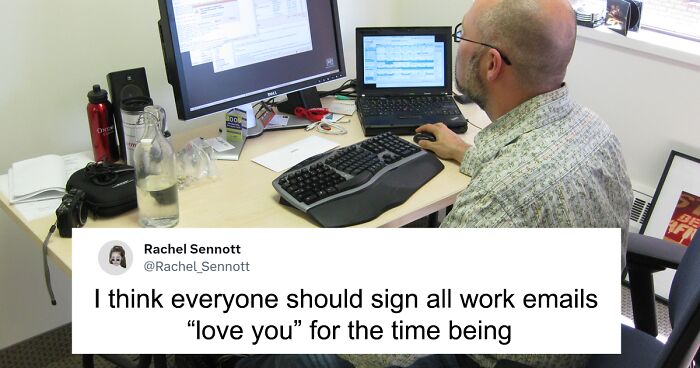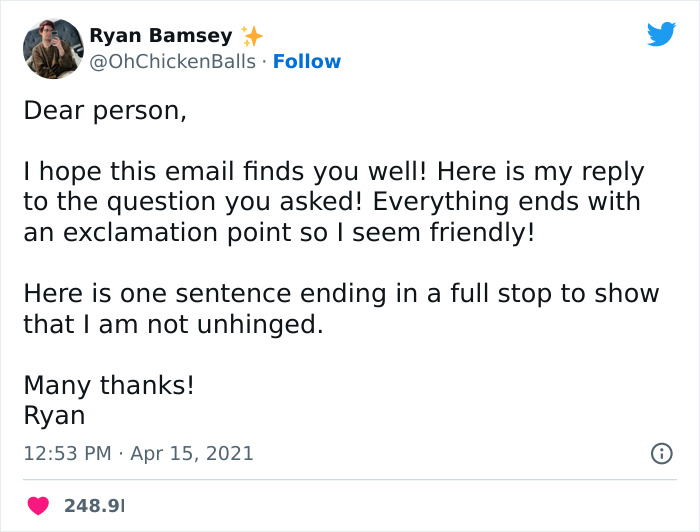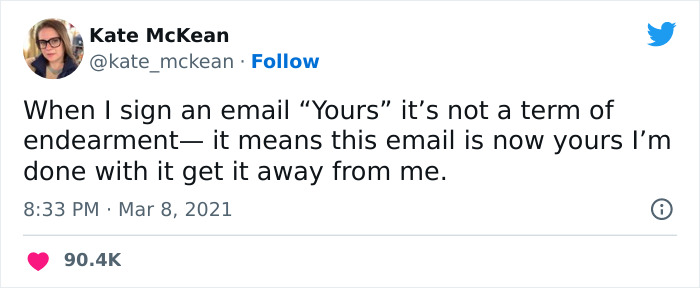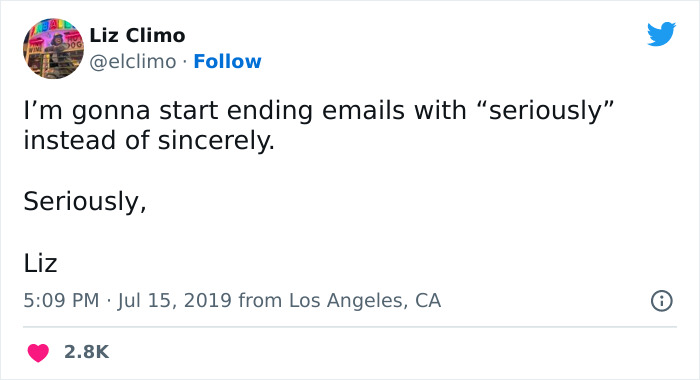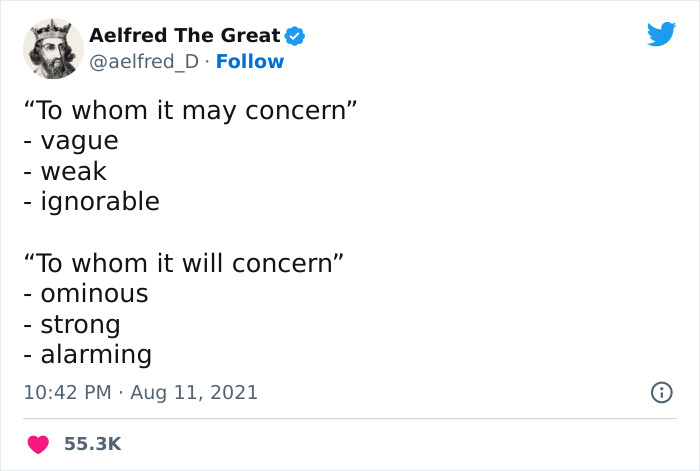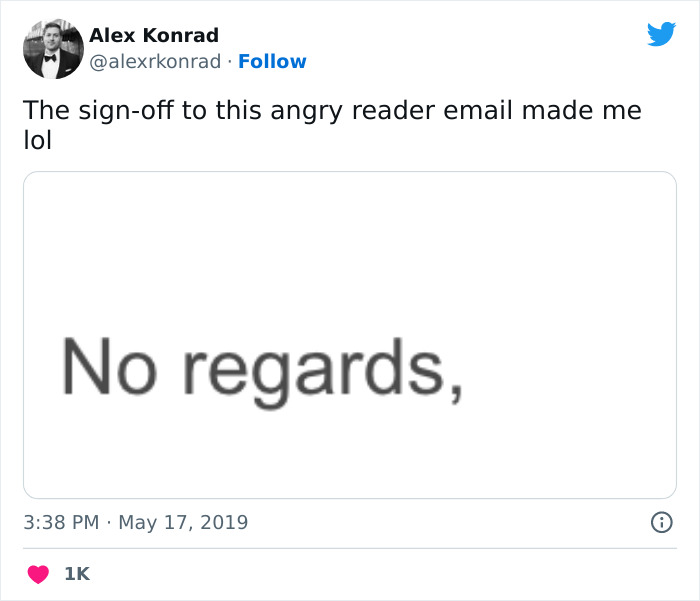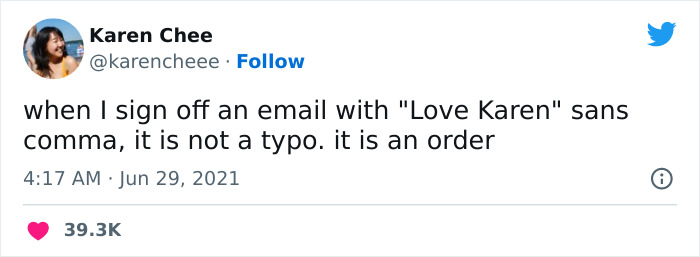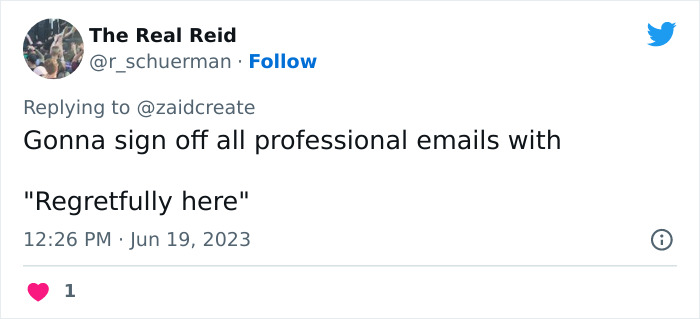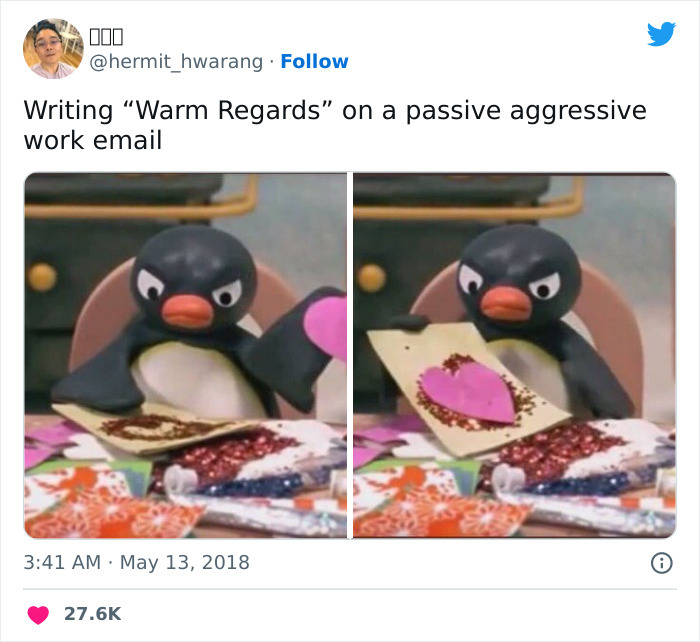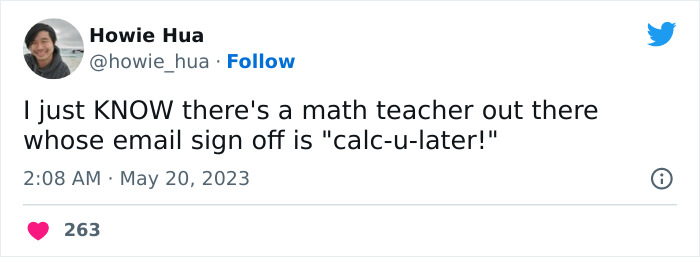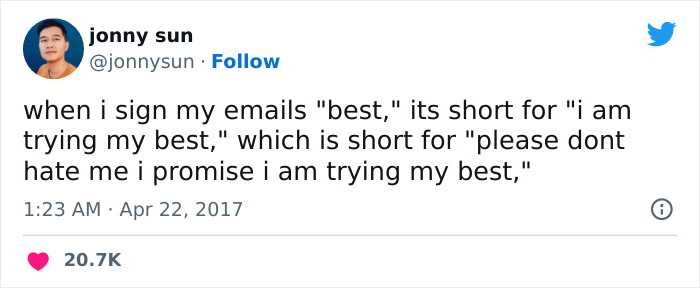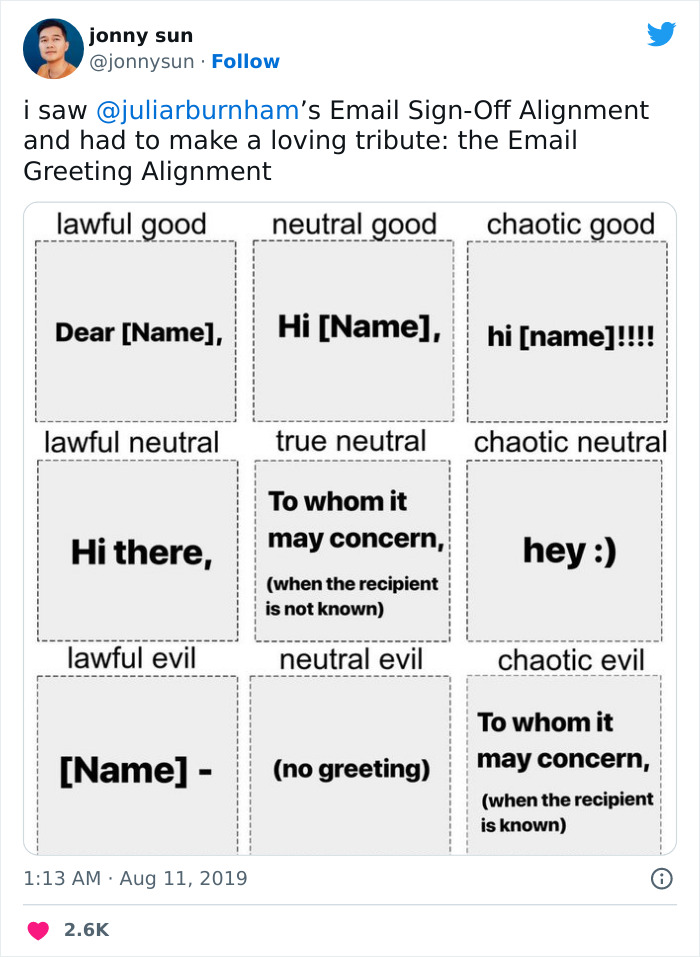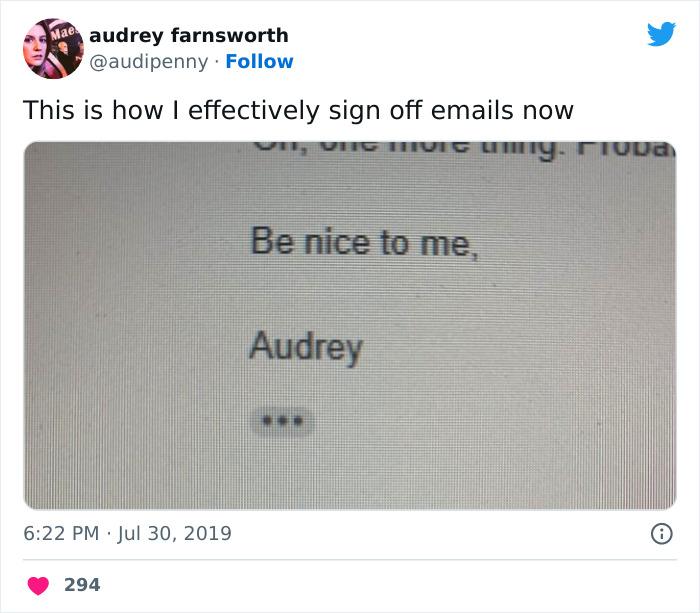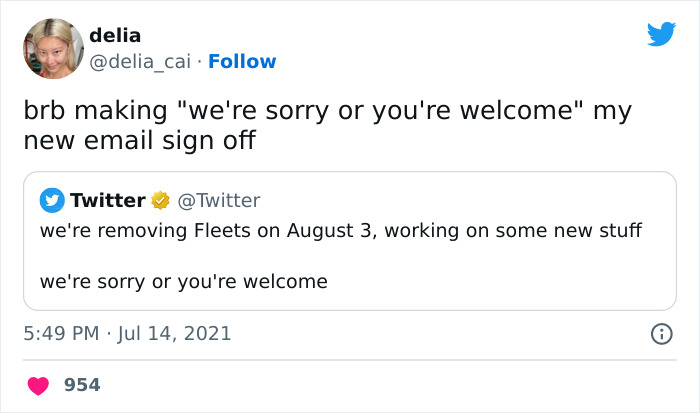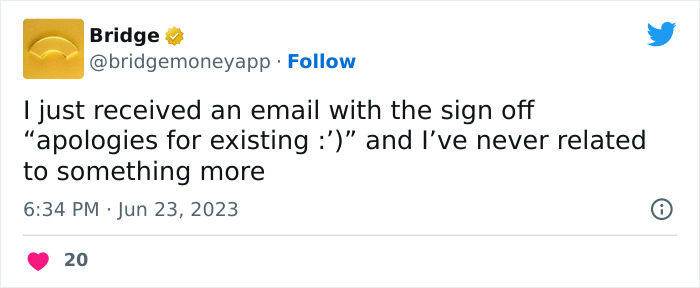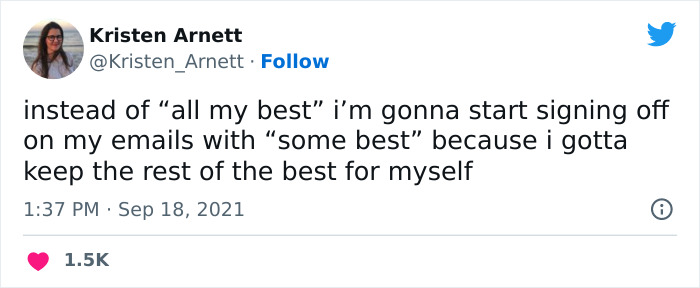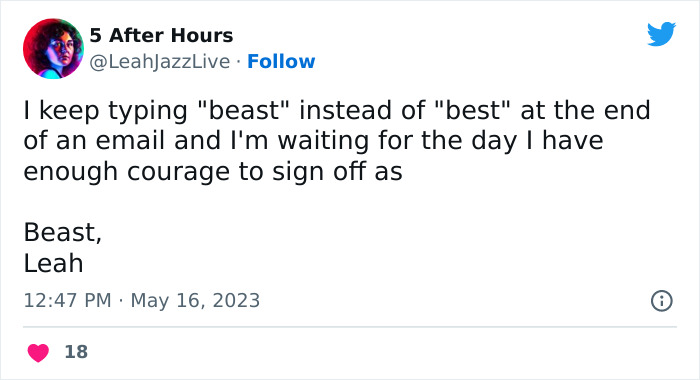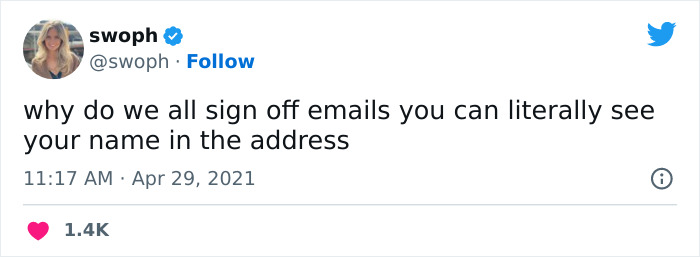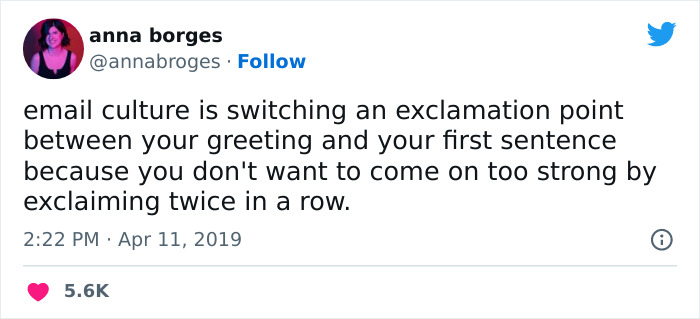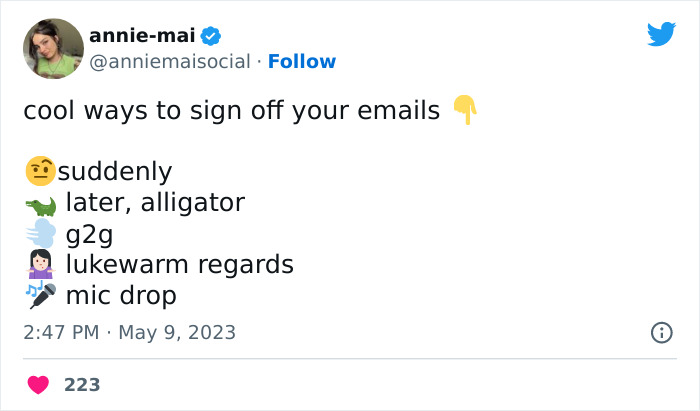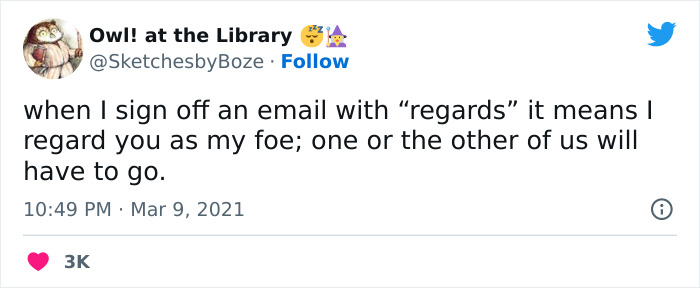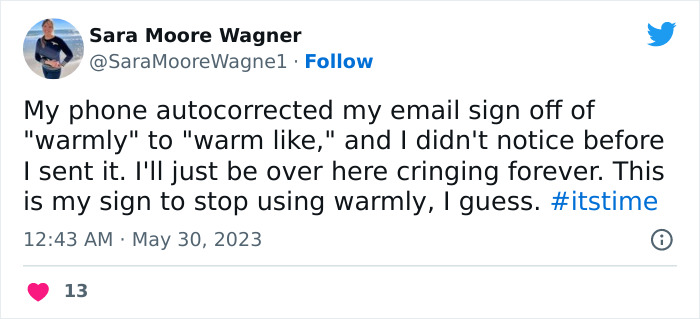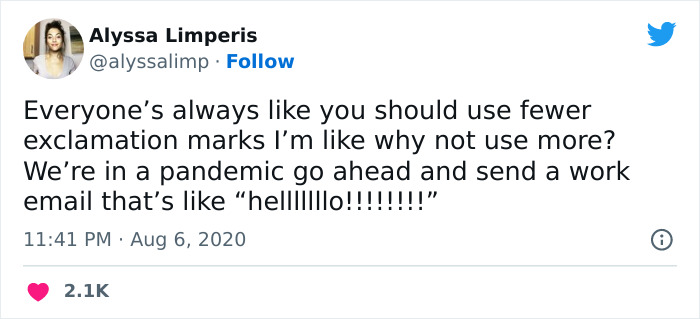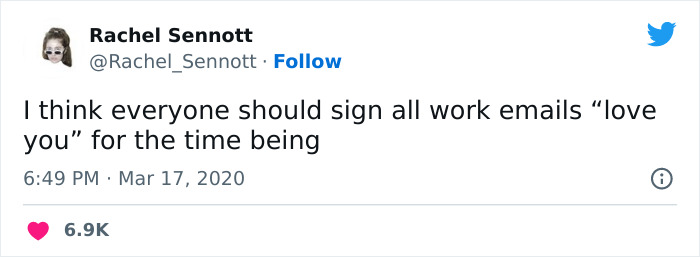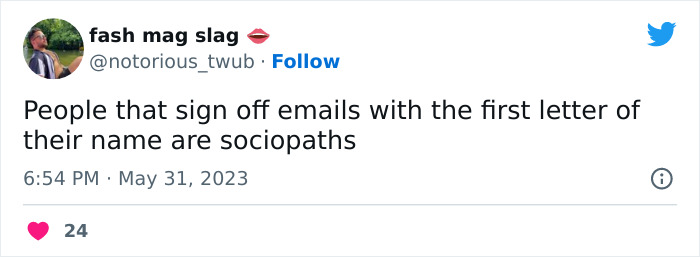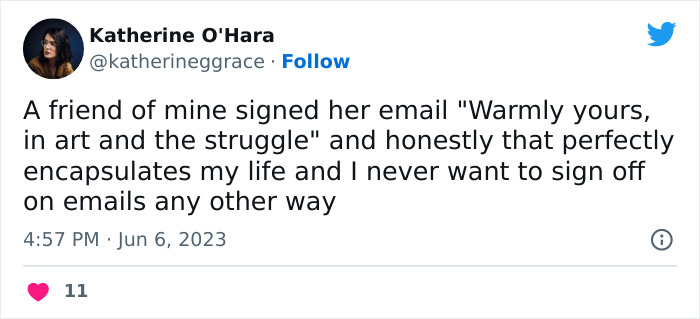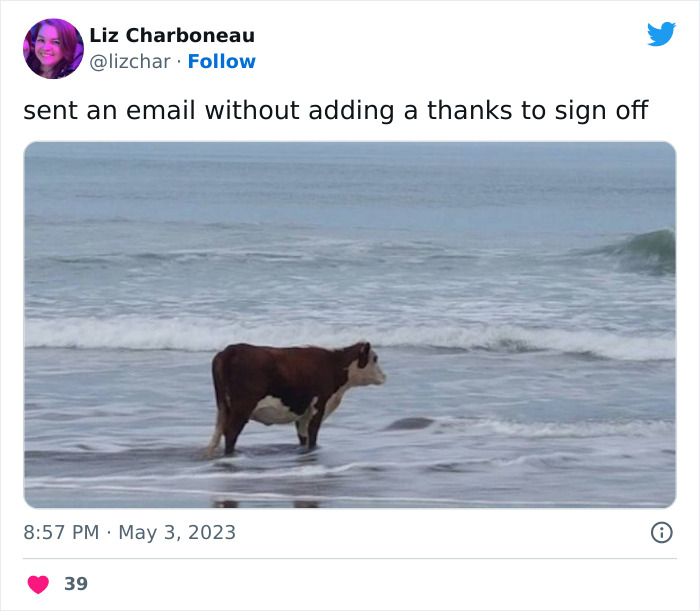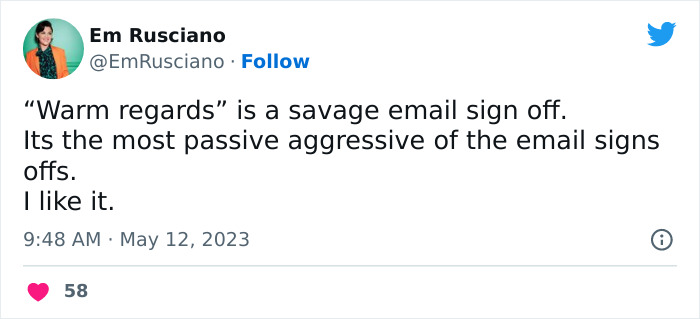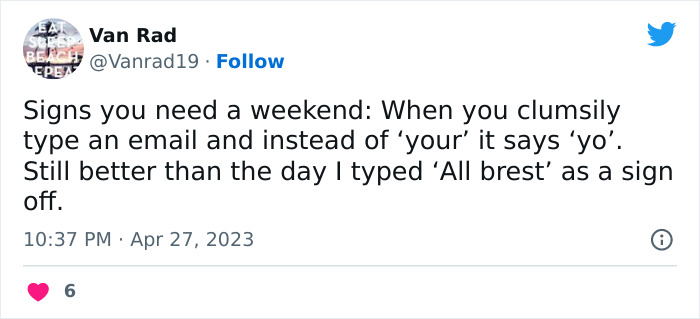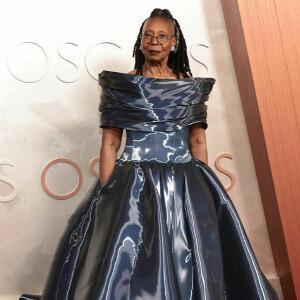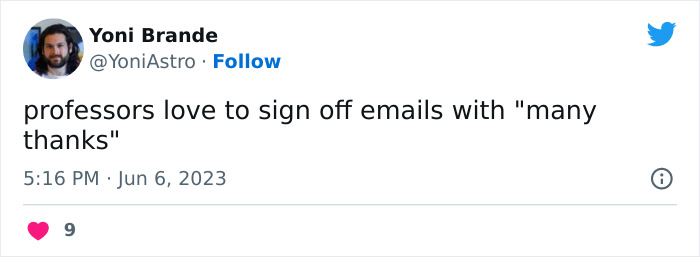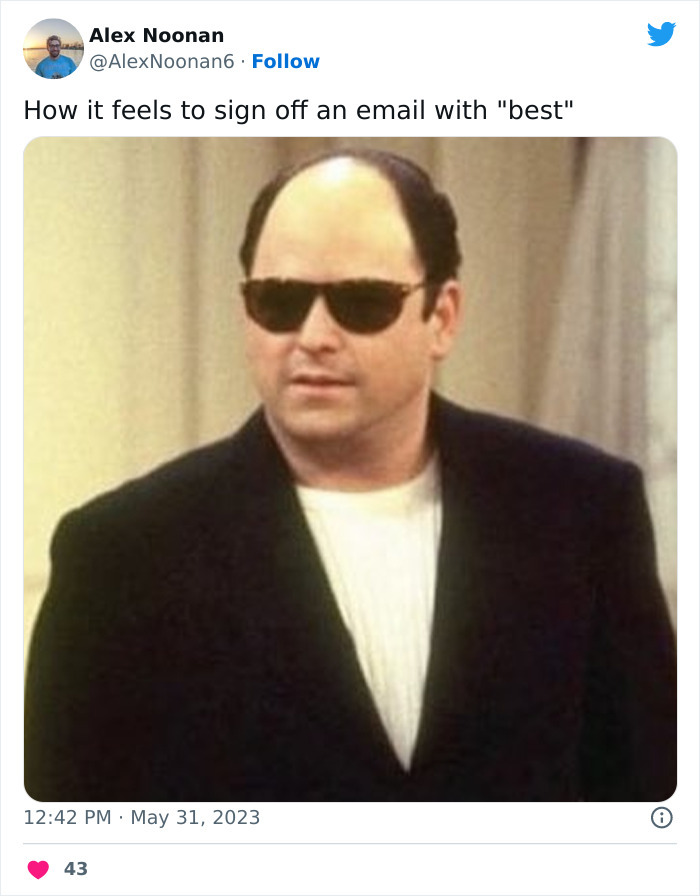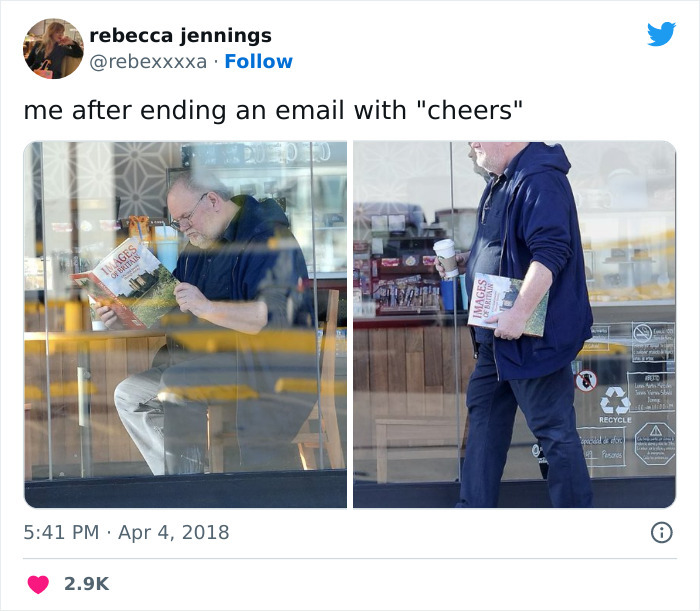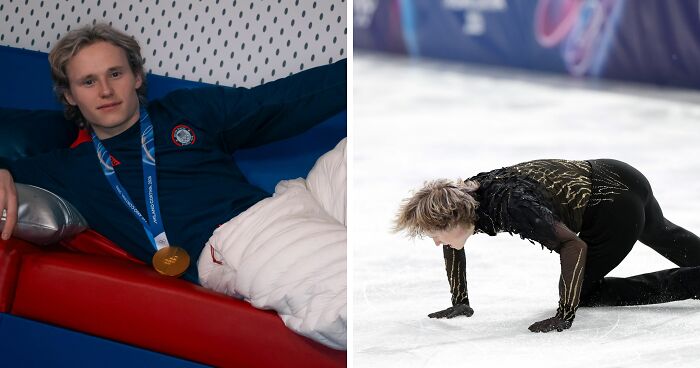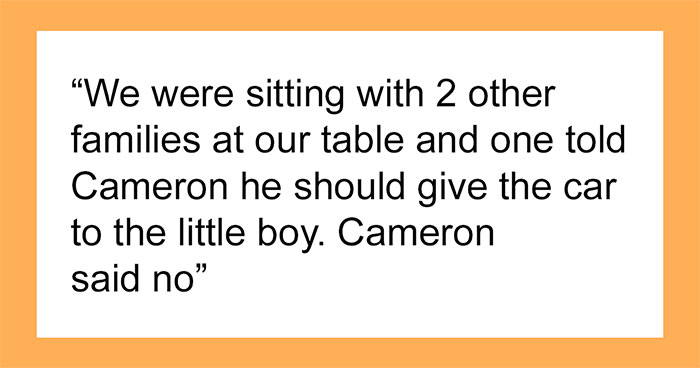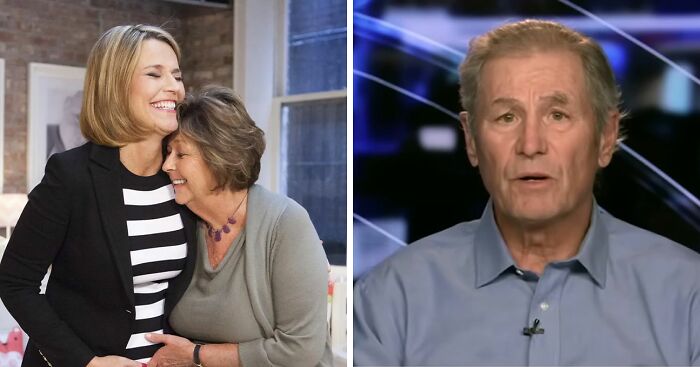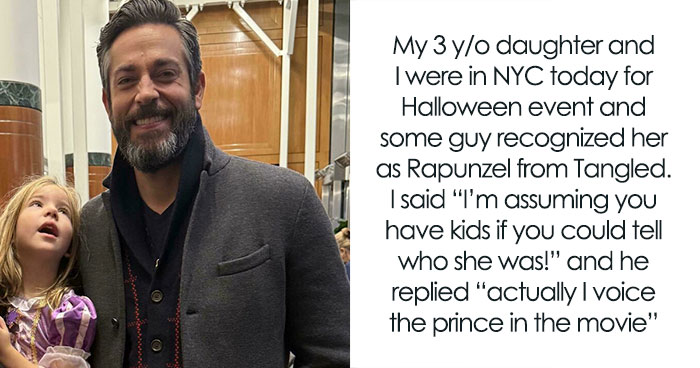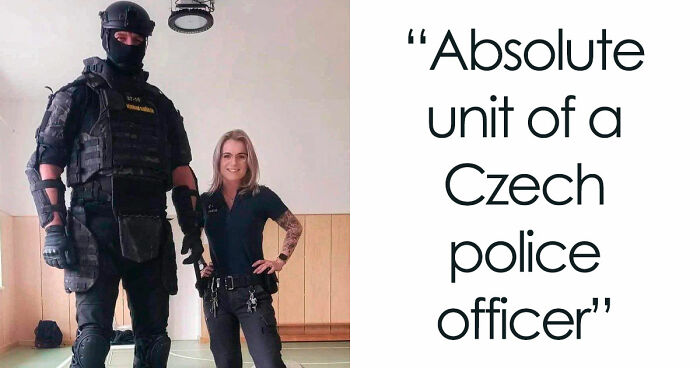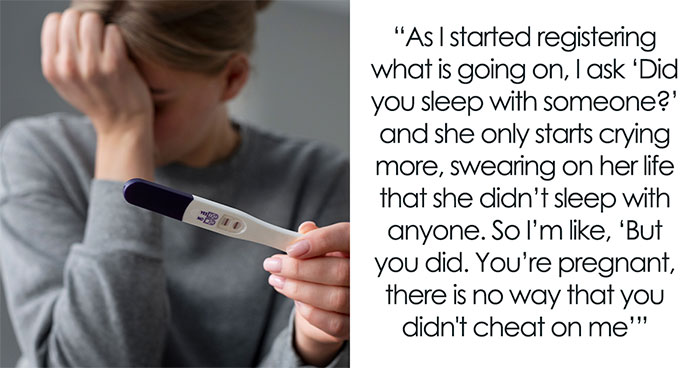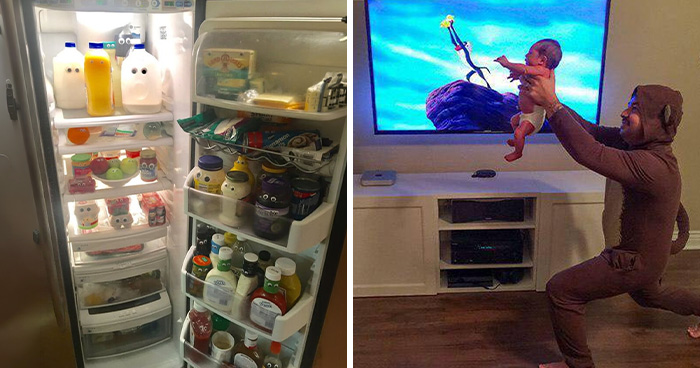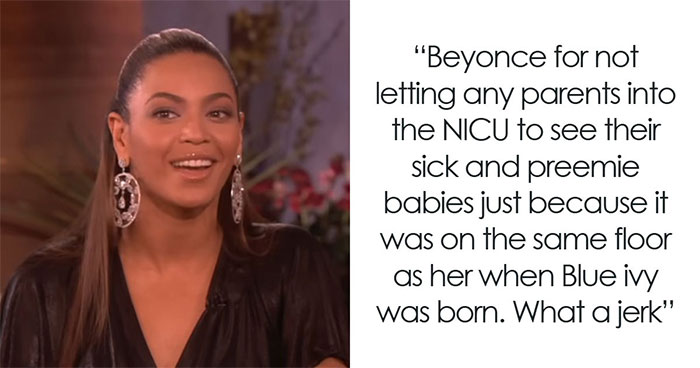As a child, I loved to read the 'England' magazine, which my grandma had subscribed to since the '60s, and over the years, she accumulated a whole collection.
From one of the issues, I remember a letter from some respectful old gentleman, who, in particular, claimed that addressing him in the format’ sir [last name]’ instead of the etiquette ‘sir [first name]’ gave him the moral right to send mail to the trash bin without reading.
I wonder what this gentleman would say if he got an email one day? It is likely that his inbox would always be empty - after all, modern email culture is punctuated by sometimes completely strange and funny greetings and signoffs. And this list made by Bored Panda is dedicated to just these funny cases.
More info: Twitter
This post may include affiliate links.
People on Twitter are getting witty about the traditions that have developed over the decades that humanity has used e-mail, and how funny and ridiculous many of these traditions look from the point of view of elementary common sense. And indeed, after all, a significant part of these traditions originated back in the '90s, when the world and the internet were completely different. By the way, here you can check how different literally everything was in those days.
Yes, the first prototypes of email go back to a much more distant past - in the '60s, when two MIT employees, Noel Morris and Tom Van Vleck, wrote the first mailing software ever. But until the second half of the '90s, when Hotmail first appeared, and then, a few months later, Yahoo Mail, email was still largely the preserve of a small audience of computer geeks. And then, in 2004, Gmail appeared - and emailing finally took shape, similar to its modern form.
Of course, over a long time (and even twenty years in the fast-paced contemporary world - that's a hell of a lot!) email has acquired many peculiar etiquette rules, especially with regard to greetings and signoffs. "Most consider it poor etiquette to start an email by diving directly into the message. An email without a greeting is like starting a conversation without acknowledging the other person first. Selecting the best email greeting sets the tone for the rest of the email and influences how they read the remaining content," Indeed's article on choosing a proper greeting states.
No no. It means "I am the best", and it's a necessary affirmation for the sender.
Alright Audrey, I will be nice. But what did you do wrong? lol
A proper signoff is considered no less important - for example, Forbes even devoted a whole longread to the analysis of this topic, offering no less than 57 different variants of signoffs. However, for those who don't like to read a lot, here are four ground rules from Cynthia Lett, a business etiquette consultant in Silver Spring, MD:
1. Don't include quotes.
2. Avoid oversized corporate logos.
3. Include your title and contact info, but keep it short.
4. Do include some kind of sign-off.
Perhaps the fourth point is really the most important, don't you think?
On the other hand, you should not be like that old Briton with whom I began my narrative. After all, the unassuming form can always hide some truly unique content, so please make sure to read your emails. In the meantime, please scroll this selection to the very end and enjoy the most amusing pieces of email-related humor that Bored Panda has carefully selected for you on Twitter, and maybe share your own wit in the comments as well.
Hey, at least they didn't sign off as "breast wishes." Not that I've done that. Nope. (whistles innocently)
This reminds me of high school, when we needed to learn to compose formal businesss letters as if the typewriter and postal mail were still the default means of communication.
I use regards because I just don't care enough for Sincerely and most of the time I am definitely not being sincere and am just angry.
The auto correct on my phone hates me. It changes completely normal words to strange and uncomfortable ones
The same person that is way to happy and energetic when you walk into the office. Lol I'm happy you're happy but its too early to do good morning marathon laps around the office
what if its an email to your ex? i really dont want to tell stupid LoGaN i love him.
Just to contradict the article text, email was not just the preserve of computer geeks, In fact it was used from at least the early 1980s in many large companies' internal systems. IBM even had a specific product called PROFS (Professional Office System) from 1983 onwards, including not just messaging but a range of document preparation and management tools as well as meeting scheduling and resourcing. I used variations of this at three or four different companies until probably the mid 1990s, only falling into disuse later when the internet started to become a reality .
Just to contradict the article text, email was not just the preserve of computer geeks, In fact it was used from at least the early 1980s in many large companies' internal systems. IBM even had a specific product called PROFS (Professional Office System) from 1983 onwards, including not just messaging but a range of document preparation and management tools as well as meeting scheduling and resourcing. I used variations of this at three or four different companies until probably the mid 1990s, only falling into disuse later when the internet started to become a reality .

 Dark Mode
Dark Mode 

 No fees, cancel anytime
No fees, cancel anytime 


